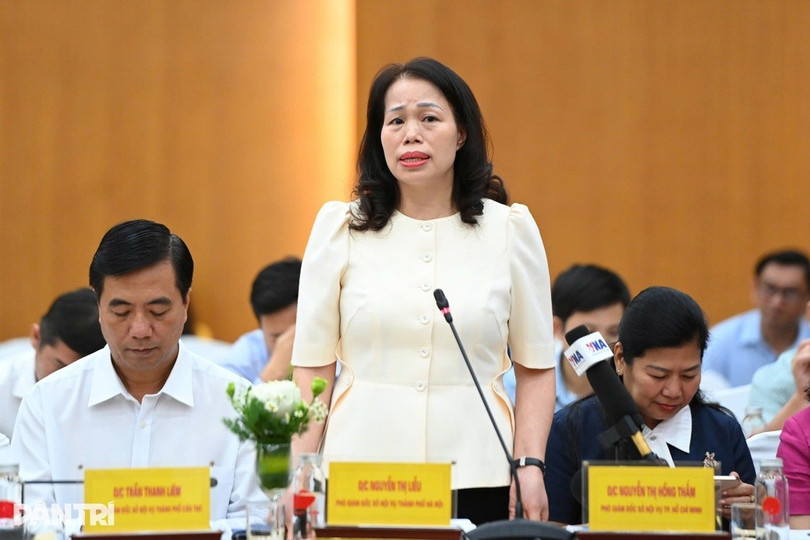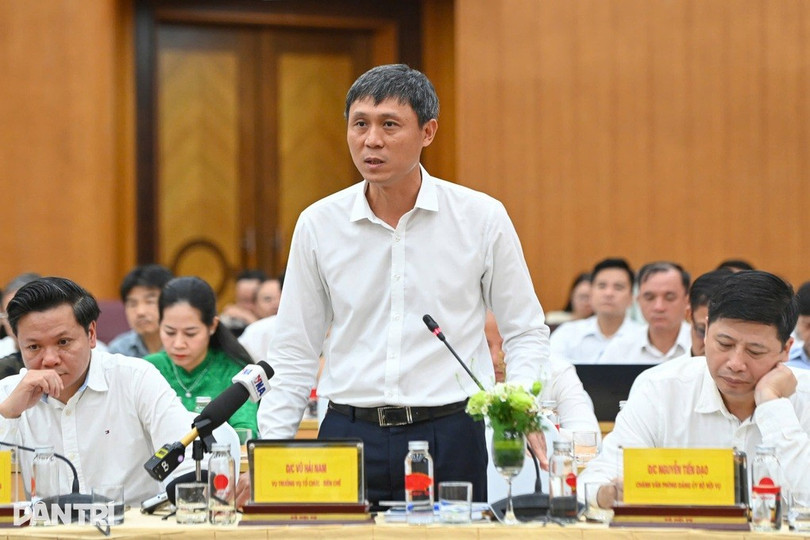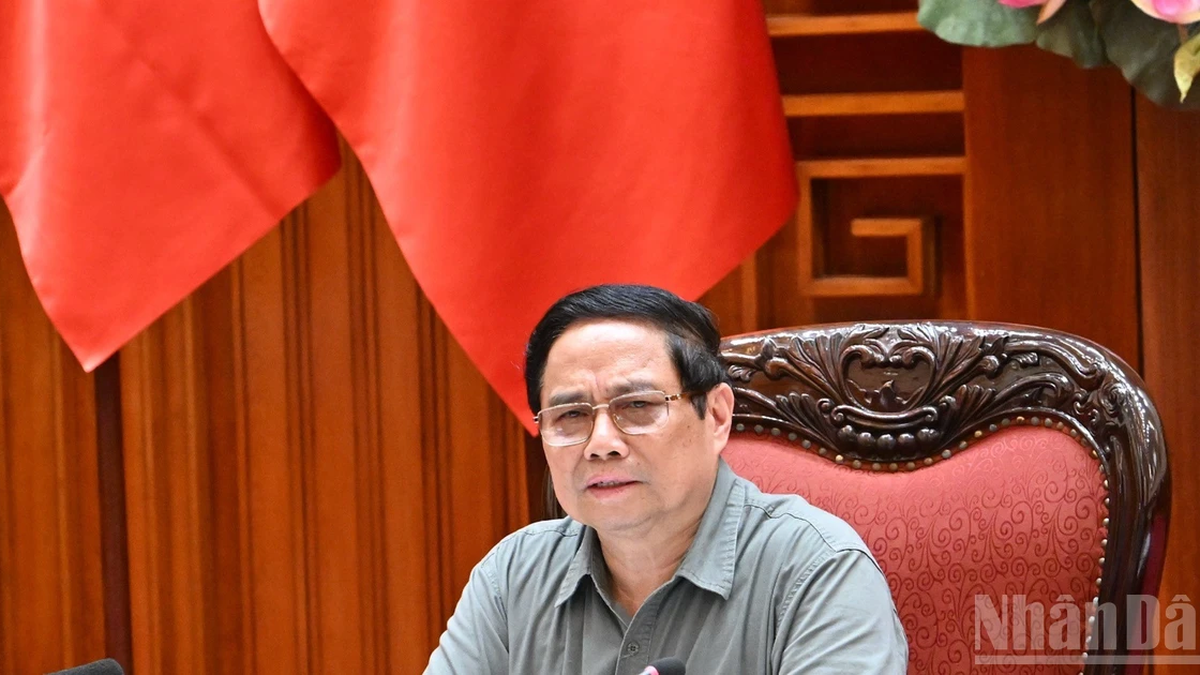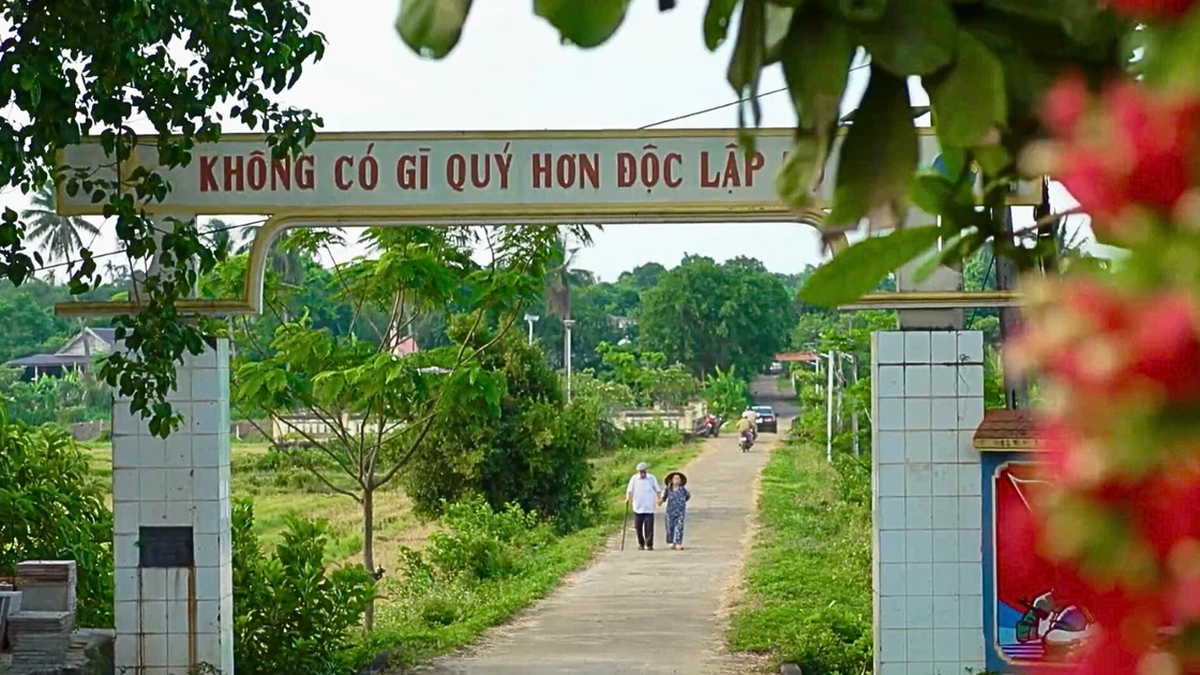Waiting for new staffing framework
After nearly a month of operating a two-level local government, leaders of the Department of Internal Affairs of several localities said that two of the biggest problems currently lie in the lack of a payroll framework and specific regulations on job positions.
Ms. Nguyen Thi Lieu, Deputy Director of Hanoi Department of Home Affairs, stated frankly: " Hanoi is very worried now. According to the Central Government's direction, when restructuring the apparatus, the number of employees must be reduced by at least 20%, starting from this year. Therefore, we hope that the Government will soon have specific staffing levels and a specific roadmap so that we can plan and implement them on schedule and according to targets."
In addition, Ms. Lieu also raised concerns about the lack of a plan for job positions after the arrangement, leading to many arising problems: "Currently, the arrangement is based on the new committee model, the departments have merged, so the job positions are disrupted: some positions have reduced workload, some positions have increased workload. We hope that the ministries and branches will soon issue instructions on determining job positions so that we can redo the plan, creating favorable conditions for the operation of the new apparatus."

Ms. Lieu said that remaking the job position project has three main meanings: Aiming at paying salary according to job position; Arranging people in the right position, as a basis for training, fostering, and evaluation; Solving the regime and policies when the 178 regime no longer exists.
"The regime under Decree 178 has a duration of 5 years, time flies; if it is implemented slowly, some people will miss the time, and the benefits will be different between those who retire 2 years before and after 2 years. Therefore, I think that speeding up the implementation of new job positions will be very meaningful," Ms. Lieu emphasized.
There is no plan to deal with the surplus of deputy positions.
In Da Nang , Director of the City Department of Home Affairs Phan Van Binh raised the issue of "redundancy in deputy positions" arising from the mechanical merger of many wards, leading to problems with equivalent positions.
"Before the arrangement, when I was still the Standing Committee and Head of the Organization Committee of the old Quang Nam Provincial Party Committee, I directed the localities to properly implement the spirit of the Ministry and the Central Government: each department has 1 head and 1 deputy. However, after reviewing the arrangement, there were 25 communes and wards with excess deputy heads.
Previously, in Da Nang, there were places where 3-4 wards were merged, some secretaries and chairmen could not be arranged so they were transferred to become deputy heads of departments. Recently, the Department has advised the Chairman of the City People's Committee to request the rearrangement of deputy heads in accordance with the Central Government's direction," said Mr. Binh.
In addition, the Director of the Department of Home Affairs of Da Nang also said that the current deputy staff in the departments still have many concerns: "The Central Government's document gives a 5-year deadline to rearrange in accordance with regulations, but Decree 150/ND-CP has come into effect, with specific regulations on deputy staff, making them worried. I have encouraged them: for now, just work with peace of mind; when the Central Government has specific instructions, we will continue to arrange appropriately, ensuring benefits so that they can work with peace of mind."
This locality also emphasized the need to "issue synchronous regulations on management of organizational structure, payroll; standards for titles and job positions of commune-level civil servants" to have a basis for arranging personnel and organizing examinations to put people on the payroll.
Building a suitable staffing framework and job positions
Faced with the above "bottlenecks", the Department of Organization and Personnel (Ministry of Home Affairs) explained: Official dispatches 03 and 09 of the Steering Committee have "clearly stated the principles of staffing arrangements within the total staffing of the whole province" for localities to adhere to during the transition period. At the same time, from now until 2026, localities will proactively use available resources to arrange personnel for the new commune level, ensuring continuous operation.

In terms of ensuring specialized human resources, the Department of Civil Servants and Public Employees noted that localities can apply Decree 173 to sign contracts to perform certain tasks of civil servants in specific professional fields, thereby "filling the gap" during the period when the staffing has not been completed.
Regarding the medium-term orientation, Minister of Home Affairs Pham Thi Thanh Tra affirmed that the task of the sector is to advise and determine "how many job positions" for the political system as a basis for estimating the number of staff for the period 2026-2030, on the basis of coordination with the Central Organizing Committee and following the criteria on functions, tasks, population, area, and characteristics of each locality.
Along with that, the Ministry will review the allowance system (regional, special and commune-level leadership position allowances) to suit the reality after the arrangement.
"There will be two major tasks in the immediate future. One is to review all allowances for commune-level cadres and civil servants, especially those in leadership positions. The second is to consider adjusting regional and special allowances: the scope of application has changed (previously 63 provinces, now 34; the number of commune-level administrative units from more than 10,000 to 3,321), so it is necessary to re-evaluate and rearrange accordingly," the Minister of Home Affairs emphasized.
Source: https://baohatinh.vn/dia-phuong-lo-chuyen-dinh-khung-bien-che-xu-ly-viec-doi-du-cap-pho-post292593.html



































































































Comment (0)